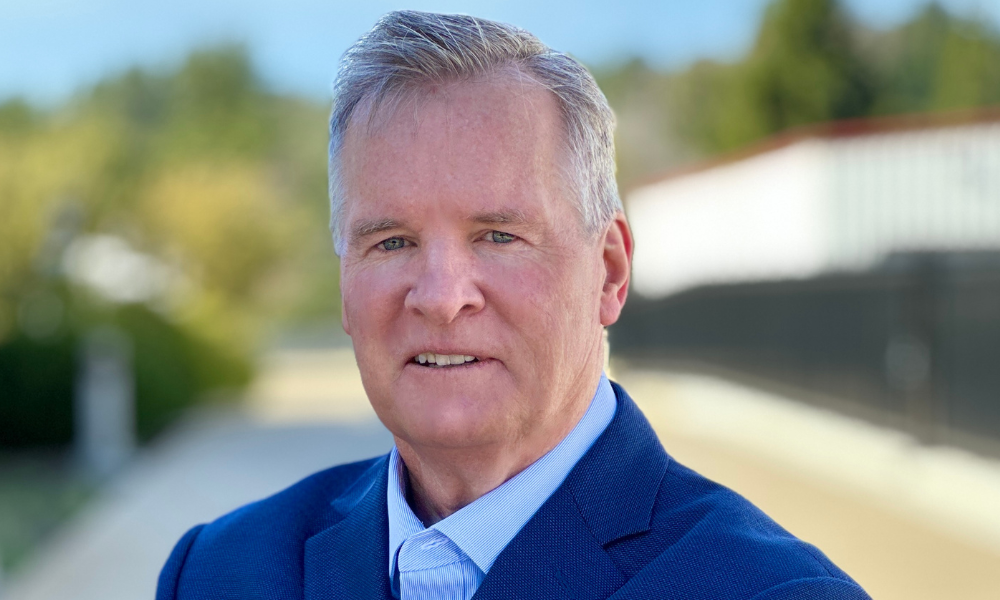There have been plenty of cleverly planned moves

To hear of recent changes occurring Newfi Lending is to glimpse vicariously into the sort of corporate machinations many lenders have had to undergo in negotiating market volatility.
For the industry, it’s been a series of changes over the last 18 months occurring at breakneck speed following a pandemic that has had lasting impact. Then came a refi wave unprecedented in scale, followed by mercurial mortgage rates metamorphosing after aggressive interest rates hikes by the Fed. Many players weren’t able to survive the post-refi wave, unable to pivot into a purchase market swiftly enough.
To be sure, Newfi – a technology-driven multichannel mortgage lender – is among the survivors, and the company remains profitable. But the status hasn’t come about without internal tinkering amid substantive market shifts.
Tinkering with the engine to keep the business model going
“Newfi was profitable last year,” Pat Doyle (pictured), president of Newfi Investment Group, told Mortgage Professional America during a recent telephone interview. “Not as profitable as we’d hoped but plenty profitable in a very challenging environment. I don’t know how many mortgage companies can say that.”
In October 2021, it was announced that Newfi had signed a definitive agreement to sell a majority shareholder interest to Athene from Warburg Pincus. The investment in Newfi is managed by Apollo, according to the announcement.
“The transaction marks the next chapter in Newfi’s evolution, allowing the company to expand its footprint and compound its expertise in the non-agency mortgage space,” company officials said at the time. Officials added the transaction came at a time of “significant momentum” for Newfi, which continued to experience record earnings growth and volume.
More recently, Doyle shared details of EquityChoice – a product seemingly built for the times. Billed as a new type of shared appreciation mortgage, the product enables homeowners to secure cash from equity rather than having to liquidate other investments. The offering gives homeowners a unique financing tool while creating a new asset class for investors.
It emerges against a backdrop of some $30 trillion in housing wealth from homeowners’ collective home equity. EquityChoice allows access to cash at a time of homeowner aversion to tap into their home equity with traditional financing options. Instead, the product ensures capital access at a below-market, fixed interest rate while sharing in a portion of their home future appreciation.
“We’re moving into the closed-end second space, multi-channel,” Doyle told MPA. “We’ve got EquityChoice, which will be multi-channel. We have a lot of traditional non-QM business that these folks have been very good at for an extended period of time, and we have a great sponsor in Apollo.”
He credited company founder and CEO Steve Abreu for his corporate navigation amid choppy waters. Under Abreu’s leadership, the company has grown from a small operation at its founding to a multifaceted lender with more than $6 billion in originations.
Doyle agreed the company’s notable role in providing non-QM loans amid a landscape increasingly populated by entrepreneurs, small business owners and gig workers – borrowers often not meeting traditional financing requirements – had also aided its growth and helped it retain profitability. And aside from the corporate tinkering, Doyle suggested an intangible advantage that has helped the company navigate amid volatility – institutional knowledge.
Historical knowledge is a powerful, intangible tool
“Steve [Abreu] and I worked together at DLJ in the early 90s,” he said, referring to the erstwhile investment bank Donaldson, Lufkin & Jenrette. “So, Steve has been through a few bad markets, and so have I.”
According to his LinkedIn account, Abreu served as vice president of San Francisco-based DLJ for two years starting in 1992. At the company’s outset, a focus on high-quality independent corporate research – at a time when there was a dearth of the commodity – fueled explosive growth. The company later expanded to junk-bond underwriting before being purchased in 2000 by Credit Suisse for some $11.5 billion.
“There’s a lot of people who have never seen this,” Doyle said, going back to the subject of intangible knowledge. “I laugh when people say ‘these are the highest interest rates since 2004’. That’s nothing compared to what I grew up in.”
As is usually the case with veterans of past market cycles, Doyle speaks in a measured, methodical manner – a cadence likely informed by the inability to fully predict economic turns even while in the throes of such shifts.
And so, asked for his assessment of what the nascent year might have in store for Newfi Lending, he musters what is likely high hopes for one who’s seen and experienced much: “We’re really excited about the upcoming year,” Doyle said matter-of-factly yet with palpable enthusiasm.
Want to make your inbox flourish with mortgage-focused news content? Get exclusive interviews, breaking news, industry events in your inbox, and always be the first to know by subscribing to our FREE daily newsletter.



